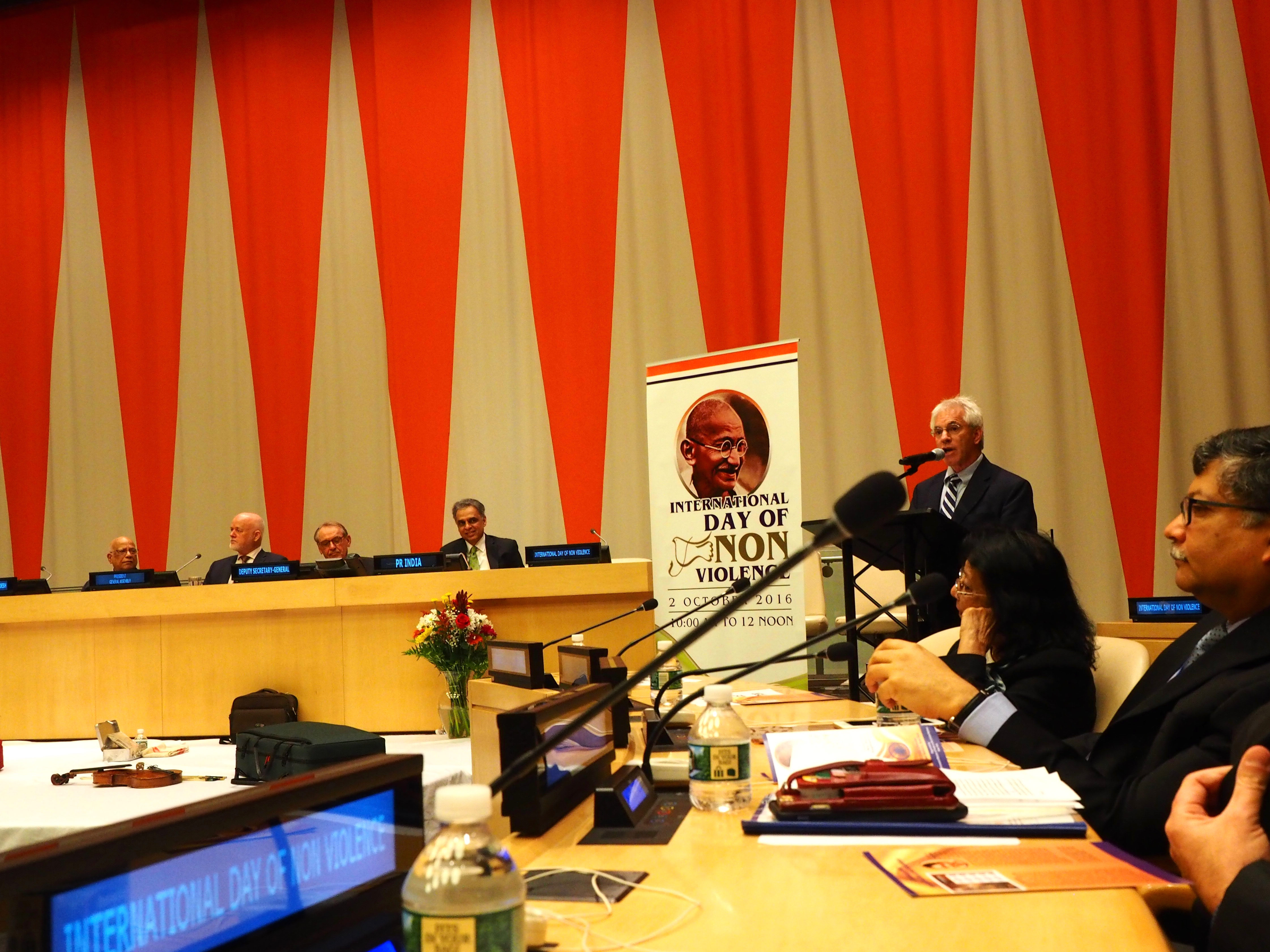By Diana McElfresh
Editor-In-Chief
Barry Gan’s interest in nonviolence started out early.
“As a kid, I never liked getting in fights. I was always trying to mediate fights. I never saw the need for them,” said Gan, Ph.D., professor of philosophy, and director of the school’s nonviolence program.
Gan’s focus in nonviolence has taken him far. So far, in fact, that last Sunday, Oct. 2, he appeared before the United Nations to discuss nonviolence. October 2 is the International Day of Nonviolence, as it falls on the same day as Mahatma Gandhi’s birthday.
The United Nations developed the International Day of Nonviolence in 2007, Gan said.
“At least for the last several years, I’m not sure how long, the permanent mission of India to the U.N. has sponsored a special commemoration of that day with various speakers,” he said.
Though there were a few more formalities than in a normal speech before a college campus, Gan said his talk before the U.N. was pretty similar to most other speeches he’s given.
Gan discussed Gandhi’s place in society today at his speech.
“Gandhi believed that the emphasis on human rights was misconceived,” said Gan in his speech. “He thought it more productive to focus on duties, what we owe others. If everyone fulfills ones’ duties to others, he believed, no one’s rights would be violated.”
Gan went on to explain that Gandhi viewed the pursuit of truth as the most important thing a person can do in their life.
“He believed that God comprised all of reality and that reality comprised truth,” Gan said. “To understand reality is to understand God.”
In an example of Gandhi’s pursuit of truth, Gan told an anecdote about a woman and her son who walked an entire day to meet with Gandhi. The woman wanted her son to quit eating sweets, as they were bad for his health. She asked the Mahatma to command her son to quit. Gandhi told the woman and her son to come back in two weeks.
When she returned, she asked why they had to waste three days to come see him again. Gandhi told her that he himself needed to quit eating sweets first before he could tell someone else to do the same.
The truth wasn’t the only thing Gandhi considered in his life.
“He also thought because we’re finite, we can’t ever realize the infinite. We can only approach it, and the more we destroy, the less able we are to approach all of it,” Gan said in an interview.
In his speech, Gan explained that Gandhi was deeply opposed to eating meat, and noted that today he would probably also dislike the use of plastics, which are inherently wasteful.
Gan said that while some tend to see Gandhi as a political figure who used religion to his advantage, he personally feels Gandhi was a spiritual man whose message happened to include politics.
mcelfrdh14@bonaventure.edu





